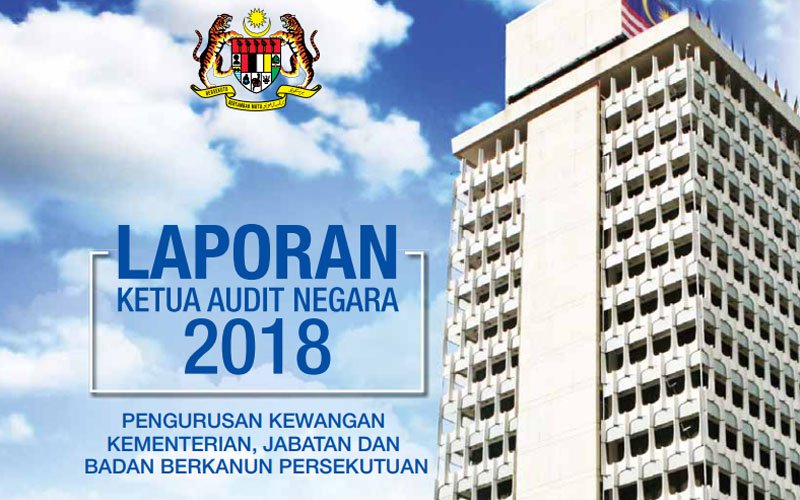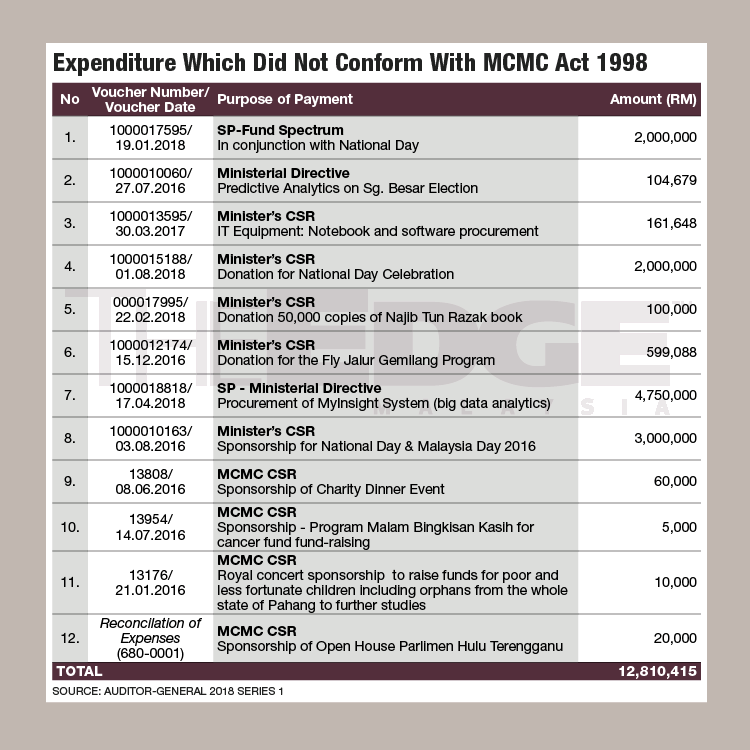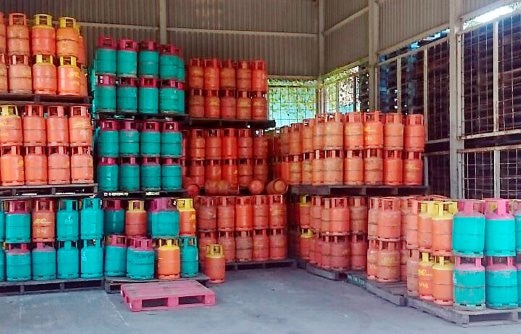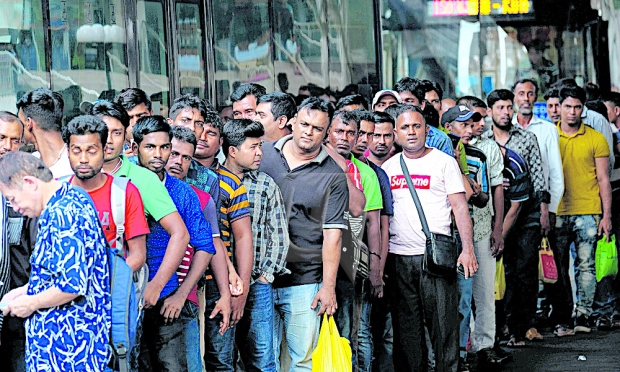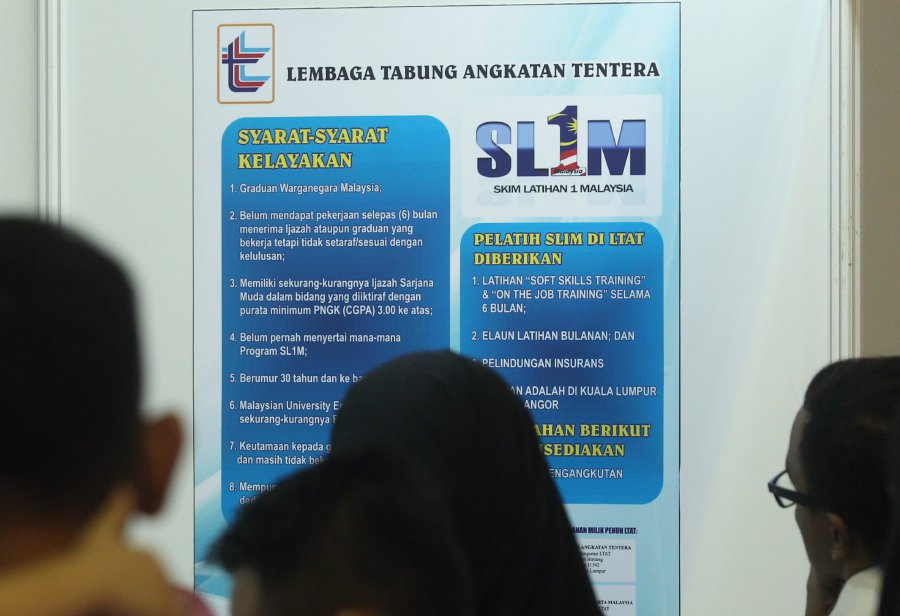The First A-G Report Of 2018 Reveals How Millions Of Taxpayers' Money Was Wasted & Misused
Several instances of mismanagement were attributed to the Barisan Nasional government.
The Auditor-General's Report 2018 Series 1, which focuses on Financial Management as well as activities of federal and state companies of ministries, departments, agencies, and statutory bodies, was tabled in Parliament on 15 July
The report encompasses audits on 54 ministries, departments, and statutory bodies on the federal level, as well as 193 ministries, departments, and agencies at the state level.
While the government's financial management is reported to have improved in 2018 compared to 2017, the report also highlighted several cases of improper payments, leakages, and wastage involving millions of ringgit
According to The Edge Markets, the A-G Report noted seven cases of improper payment by government agencies involving RM38.73mil, five cases of leakages involving RM1.764 bil, and six cases of wastage involving RM26.47mil.
Public Account Committee (PAC) chairman Datuk Dr Noraini Ahmad blamed the issues on weaknesses in project planning, unorganised contract management, lack of quality control and monitoring, with Auditor-General Datuk Nik Azman Nik Abdul Majid adding that the discrepancies occurred due to a disregard of government procedures and rules.
1. Out of 19 government projects highlighted in the report, only six were completed
The Edge Markets reported that eight of the projects were incomplete, four cannot be measured due to a lack of data to support the investigation, while one cannot be revealed.
A major project outlined in the list is the construction of the Perlis Sports School (SSM Perlis), which has been delayed for nearly five years since it was first approved under the 9th Malaysia Plan. Moreover, attempts to revive the RM76.6 million project is facing more delays after the contract was given to the same "incompetent" contractor that undertook the project originally.
2. Under the Barisan Nasional (BN) government, the Malaysian Communications and Multimedia Commission (MCMC) spent RM12.81 million on special projects unrelated to its job scope from 2016 to April 2018
According to Malay Mail, the expenses include:
- RM4.75 million to procure a big data analytics system called MyInsight System, which was purchased a week ahead of GE14;
- RM100,000 to donate 50,000 copies of former Prime Minister Datuk Seri Najib Razak's books in February 2018; and
- RM104,679 on predictive analysis for the Sungai Besar by-election in mid 2016, based on a ministerial directive.
See the full list of MCMC's unrelated expenditure, as outlined by The Edge Markets, here:
3. In 2015 to 2017, the government overpaid LPG (liquid petroleum gas) subsidy payments by RM1.717 billion due to weakness in SOPs for monitoring and enforcement
The LPG subsidies, which were meant for domestic consumers, were being taken advantage of by laundromats and eateries for their daily operations.
According to Malay Mail, the amount of subsidies was supposed to be RM730.08 million in 2015, RM676.08 million for 2016, and RM1.285 billion for 2017. However, the actual payouts ended up being way higher at RM1.245 billion in 2015, RM1.094 billion in 2016, and RM2.069 billion in 2017.
As such, out of the RM4.409 billion in subsidies spent from 2015 to 2017, some RM1.717 bil (38.9%) was actually leakages to non-qualified consumers.
4. RM203.89 million in grants meant for betterment of Malaysian Indians were mismanaged by a special unit under the Prime Minister's Department
Moreover, the report highlighted that between 2016 and March 2018, the then Health Minister, an assistant minister in the PM's Department, and SEDIC itself applied for up to RM38 million in funds for one-off contributions to NGOS and Indian places of worship.
Malay Mail reported that the Socio-Economic Development of the Indian Community Unit (SEDIC), formed by the BN administration in 2014, was supposed to give out grants and assistance to Indian NGOs to manage programmes in aid of the community.
In 2017, RM18.91 million in funds were distributed to 49 NGOs that did not fulfill the necessary criteria set by SEDIC
Other issues include:
- 20 individual files for 23 NGOs with allocation worth RM10.77 million in 2014 were not submitted to SEDIC for audit purposes;
- Five NGOs and one skill-training institute did not return extra funds worth RM2.86 million;
- 35 NGOs and four ILKS did not open separate accounts; and
- Six programmes worth RM2.93 mil involving six NGOs were implemented by third parties, with RM1.18 paid to third parties before the programme even started.
The Star reported that in a random survey, participants of five programmes worth RM1.9 million said they were not even aware of the programme's existence, while some participants could not be verified coz no participants list was provided.
5. Between 2016 and 2018, there were elements of fraud and manipulation in the Malaysian Immigration System (MyIMMs) for foreign labour quota approval
New Straits Times reported that the quota granted to 123 companies to bring in foreign labour was found to be fake, adding the quota was also created in a disorderly manner.
Out of 32,424 foreign workers in the quota, 21,378 had obtained temporary working passes. The audit estimated that the first levy payment collection for 21,378 workers should have been RM24.55 million, but the fake quota and possibility of fraud could have led to losses of government revenue.
In addition, the creation, approval, and workers' levy payments were not made at the Home Ministry's Foreign Workers' management division One-Stop Centre (OSC), but at 10 ministry divisions or the Immigration Department, which did not have authority to carry out the roles.
6. RM17 million in funds allocated to the 1Malaysia Training Scheme (SL1M) were invested without the knowledge of the scheme's secretariat
According to The Edge Markets, the SL1M secretariat received RM65.8 million from the Prime Minister's Department and Ministry of Finance for 2016 to 2018, in which RM54.3 million has been spent.
However, out of the money spent, RM17 million was invested by TalentCorp in 2017 and 2018 without the secretariat knowledge. The audit noted that this is not in line with TalentCorp's role and responsibility as paying agent on behalf of the SL1M Secretariat.
The report also highlighted several problems plaguing SL1M, including:
- Weaknesses in the financial management of the programme;
- Problems with procurement and monitoring of companies that were given contracts under the programme; and
- The process of certifying the companies that were eligible for double tax deduction incentives.
7. Most mind-bogglingly, a radar facility - which cost RM289.9 mil and had its completion delayed for three years - is now posing a risk to the national air defence
Supposed to be completed in February 2016, the project was ultimately only completed in October 2017 but was not operational until January this year due to delays in relocating radar equipment to the site.
However, according to The Edge Markets' report, the relocation of the radar from its temporary location to its current site "could affect the radar detection coverage and pose a risk to the national air defence".
The report also highlighted weaknesses in the site handover process from the contractor to the end-user, as well as low work quality that did not conform to specifications.
